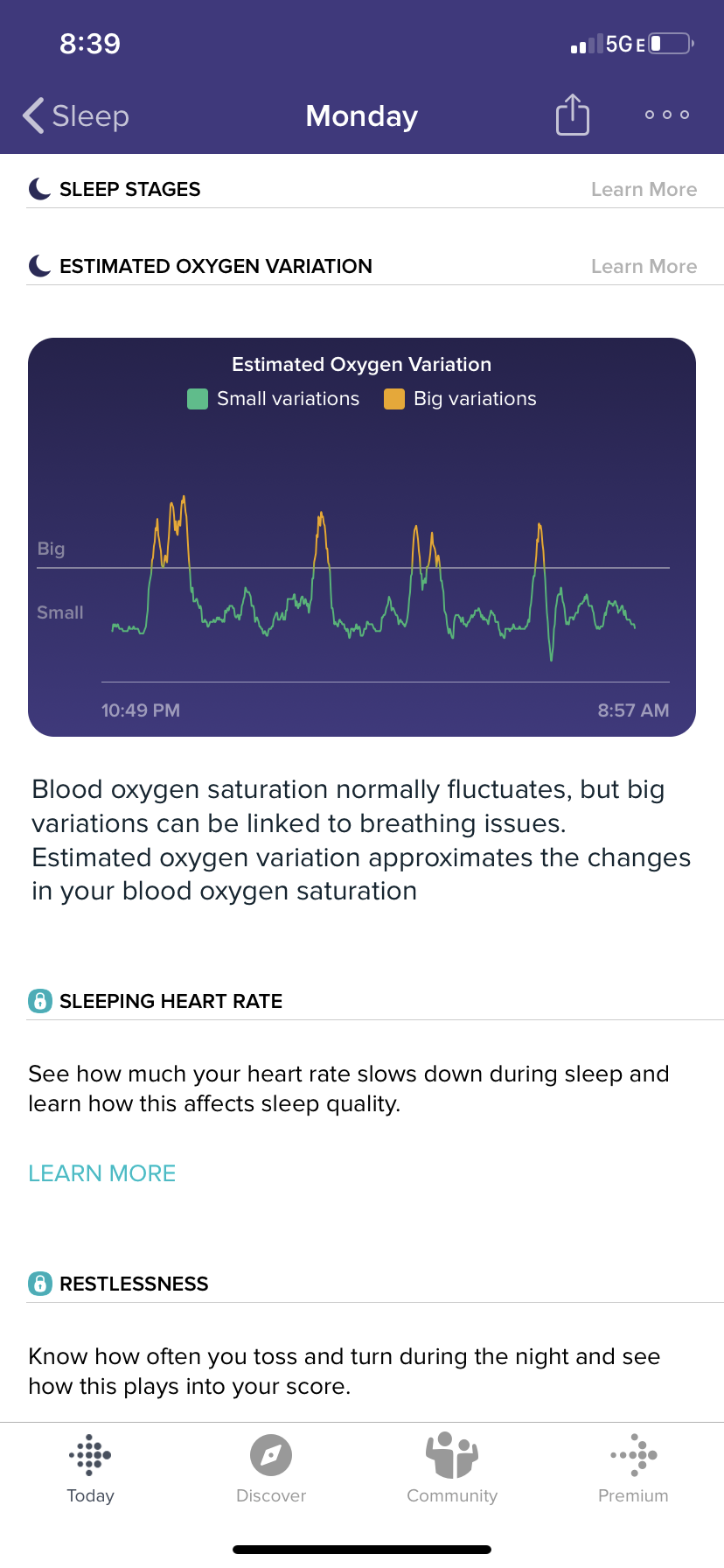For it to show information you have to be using a Charge 3 Ionic or Versa. Your Fitbit cant measure the bloods exact oxygen saturation level but it can detect major changes.
![]() Fitbit Finally Turns On Spo2 Sensors And Begins Tracking Blood Oxygen Levels Universmartphone Com
Fitbit Finally Turns On Spo2 Sensors And Begins Tracking Blood Oxygen Levels Universmartphone Com
Your Fitbit device tracks your EOV while you sleep using red and infrared sensors on the back of the device.

Does fitbit track oxygen levels. Back in 2018 Garmin introduced Pulse Ox with its Vivosmart 4 activity tracker allowing users to gauge their blood oxygen saturation levels on the spot or periodically as they sleep. Either the way it tracks the level of oxygen in your blood accurately. Fitbit Charge 4 in-depth.
Fitbit has released an update for its Versa and Ionic lines that lets you quickly check your blood oxygen saturation. The Charge 4 already tracks blood oxygen levels at night in the Estimated Oxygen Variation feature which is part of the advanced sleep tracking offering in Fitbit Premium. However a Fitbit spokesperson told us that the graph provided by Fitbit is an estimation of.
So far Fitbit has only made blood oxygen monitoring available under the sleep portion of its app and presents the data at a generalized level so dont expect to see exact hour-by-hour levels of. A post from a user on Reddit shows that their Fitbit app now displays oxygen variations levels. We remember Apple saying its Apple Watch can make it happen as well but they are yet to do anything about it.
Seeing big changes is a clue that you may be experiencing breathing disturbances during. The EOV feature is designed to see specific events overnight when your blood oxygen saturation levels varied which could indicate breathing disturbances. The more red light your blood returns the more oxygen you have.
EOV tracking is available on Fitbit Charge 3 Fitbit Charge 4 Fitbit Ionic Fitbit Sense and Fitbit Versa series. Fitbit Versa 3 is another excellent smartwatch packed with many health and smart features. It has a SpO2 sensor to track your blood oxygen level during various activities.
The charge 3 was supposed to have this feature. Unlike in other use cases the color red signifies a good value whereas blue signifies a poor value. Fitbit SpO2 estimates your average blood oxygen saturation levels.
Fitbits range of smartwatches will track blood oxygen levels throughout the time you are wearing them. You can use either a SpO2 enabled watch face or SpO2 App to check SpO2 on this device. The sensors shine red and infrared light onto your skin and blood vessels using the color of the light that bounces back to approximate how much oxygen is in your blood.
Estimated oxygen variation EOV is an estimate of the changes in your blood oxygen saturation levels. Does the Charge 4 have a pulse oximeter to measure blood oxygen. Unlike some devices that will give you a number for your blood oxygen level.
The charge 3 was supposed to have this feature. A few weeks ago Fitbit launched blood oxygen monitoring to five of its devices Versa Versa 2 Versa Lite Ionic and Charge 3. The Fitbit Estimated Oxygen Variation score An oxygen saturation percentage greater than 95 is considered to be a normal reading.
With the free SpO2 clock face your Fitbit smartwatch will track your nightly average SpO2 levels. For instructions see How do I track my estimated oxygen variation in the Fitbit app. How do I track my estimated oxygen variation in the Fitbit app.
Fitbit has released a new watch face for all Fitbit Versa and Fitbit Ionic that makes it easier to track your estimated blood oxygen saturation SpO2. While its not necessarily unheard of for fitness tracking devices to have this feature Fitbit seems. If you see a.
Fitbits are now better for monitoring blood oxygen levels. Based on these readings your Fitbit can then provide a relatively accurate estimate of the oxygen levels in your blood. While it may sound like the name of a sci-fi character SpO2 actually refers to the oxygen levels in your blood.
However the company clarifies that the SpO2 levels shown by the watch should not be used for medical purposes.
